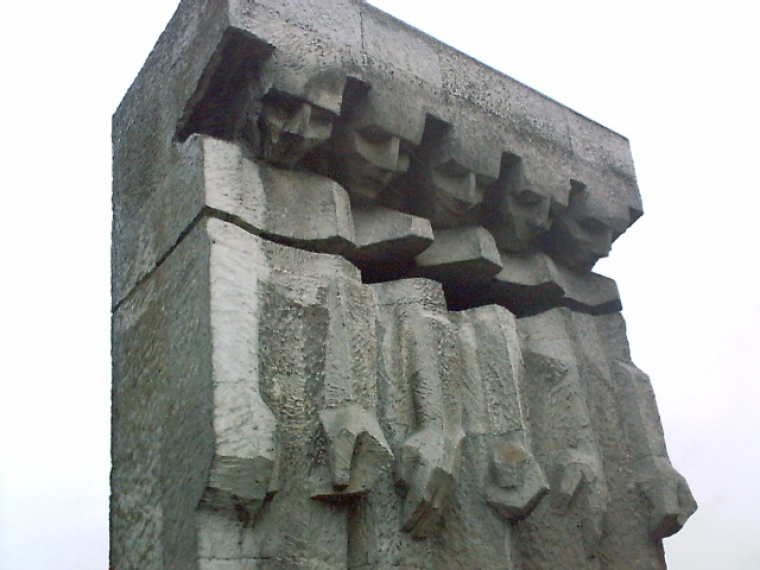

'Twas the Council of Nicaea
And all through the house
Not a creature could believe it
When Santa punched Arius in the mouth
- Haydn Lea (2016)
As we get to the end of the year I feel that it is an appropriate time to share my favourite Christmas story. It is hardly a Christmas classic. How often do you read about early church fathers punching heretics? But that is exactly what I wish to write about.
Yet before we get to the good part, it behooves us to first introduce the victim of Santa's pugilistic prowess.
Arius and his views
Arius was a presbyter in the early fourth century, who was ordained a presbyter in charge of one of Alexandria, Egypt's main churches.
He started well, and made a great impression as a thinker and preacher. However, by about 318AD, he was causing controversy by teaching that Christ was "subordinate" to the Father. He claimed that if the Father did beget the Son, then Jesus has a beginning of existence—there was a time when the Son was not.
In response to this, Alexander (the Bishop of Alexandria) sought to explain the true nature of Christ. He explained that the Son is eternal, uncreated, and equal to the Father—he was homoousios, of the same essence as the Father.
Yet Arius responded that Christ was created. He was not of the same essence (homoousious) as the Father, only of similar essence (homoiousious).So Arius was denying the full deity of Christ.
The debate about the nature of Christ quickly spread. The entire Eastern Church was impacted by the controversy; at the time that Emperor Constantine was aiming to unify the Roman Empire. So he decided to take direct action, and in 325 convened the first ecumenical council at Nicaea, inviting all bishops in the empire.
The Council of Nicaea
It is here that the story gets fun. More than 300 bishops were present to debate Christ's nature. Is He equal to the Father, or a subordinate created being?
Arius eloquently presented his position. What he was teaching may seem like a minor point, but he was, in reality, attacking the very heart of the gospel by attacking the deity of Christ.
One bishop that was present, Nicholas of Myra (otherwise known as Saint Nicholas, or Santa Claus), viewed the matter thusly. He became so agitated at this attack on Christ, that he crossed the room and struck Arius across the face. This method of dealing with disagreements is not recommended, and Nick was duly punished for his outburst and the council continued.
Eventually, the majority of bishops (all but three, including Arius) agreed to a creed that repudiated Arianism and upheld the eternal deity and homoousious of the Son. Thus the Nicene Creed became the official orthodox belief:
We believe in One God, the Father, Almighty, Maker of all things visible and invisible:
And in One Lord Jesus Christ, the Son of God, begotten of the Father, Only-begotten, that is, from the substance of the Father; God from God, Light from Light, Very God from very God, begotten not made, Consubstantial (homoousios) with the Father, by whom all things were made, both things in heaven and things in earth; who for us men and our salvation came down and was incarnate, was made man, suffered, and rose again the third day, ascended into heaven, and is coming to judge the living and dead.
And in the Holy Ghost.
Why does this matter?
This is a critical Christmas question, not only because it involves Santa punching people, but because it strikes at the heart of the Christmas message. Who is the baby that came to earth, whose incarnation we are celebrating? Is it a normal human baby, who grew up to teach some nice things about love, or is He truly Immanuel, God with us?
If, as Arius, and many today suggest, Jesus was not God, we must ask ourselves a very serious question—can any human being, no matter how special, actually objectively save sinful humanity from their sins?
The biblical picture instead seems to teach that sin has infected the very heart of all humanity, and because of this no single human can atone for sin as a whole. Perhaps a perfect human could live sinlessly and earn eternal life for themselves, but this would mean nothing for us sinners who are left falling short of God's standard.
Because God is a holy righteous God, whose divine law has been universally transgressed, it would take God Himself to remove the punishment due to humanity. And that is precisely what we celebrate at Christmas. God Himself, clothed in humanity, came to earth and lived the perfect life in our place, then likewise took on the punishment of sin in our place, so that if we turn to Him in repentance our sins are forgiven, our relationship with God is reconciled, and we are sent to live in light of this.
No human could do this for us. So let us humbly thank Jesus, the co-eternal, co-equal, divine, second person of the Godhead, for what He has done.

Haydn Lea is an Associate Pastor in Queensland, and is currently studying his Master of Arts (Theology). He has been a member of the Royal Australian Air Force since 2007, and is now training to be an Air Force Chaplain. He is married to Shamsa Lea, and loves distance running and studying Theology. He promises that he has never punched somebody for being a heretic.
Haydn Lea's previous articles may be viewed at http://www.pressserviceinternational.org/haydn-lea.html